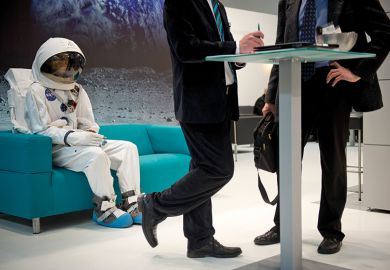Imagine that back in 1750 someone had stipulated that the primary focus of an engineer should be to do less harm to our planet than their predecessors did. Fat chance such a profession would have attracted anyone decent. But that is what we are suggesting today’s engineers should focus on.
There is a growing recognition that the current carbon-intensive approach to engineering projects is just not good enough given the rate of climate change. This approach must change – and quickly. Accordingly, the National Engineering Policy Centre’s Engineers 2030 working group, of which I am a member, is beginning to consult on a new vision and principles for engineers from 2030. You might be surprised by our direction of travel.
Low-carbon designs, and even net-zero designs, are good examples of how to do less harm to our planet. But while both tend to get a big tick for sustainability, they still have an environmental impact. “Regenerative” design, on the other hand, seeks to do positive good for the planet – restoring and enhancing ecosystems – rather than merely less harm. If we are to mitigate the environmental crisis, engineering needs to quickly embrace this approach.
So where do we start? Engineering education at university is always a good place but, in fact, we need to begin before that. I do not mean at school, although, clearly, we need well-educated thinkers coming to university. I mean that we need to rethink the kind of school-leavers we recruit onto engineering degrees. If engineering is to become regenerative, as it must, then it needs to be attracting holistic-thinking carers.
Just imagine how differently our profession would be viewed were it perceived as a caring profession. Doctors and nurses make people better. Engineers need to make the world better. But, for that, they need a wider set of attributes than we currently select for.
Traditionally, engineering has been perceived as a physics-based profession. I am an example of this. I became an engineer because I was good at maths and physics. Most engineers have similar stories. While there will, obviously, always be a place in engineering for the technically minded, there is a compelling need for a broader range of thinkers in our profession. Put simply, and with huge empathy for all technically minded people reading this, engineers in future must, largely, have different attributes from ours.
Needless to say, this is a very hard sell! Many of us tend to believe that our background is the background to being a good engineer, don’t we? But this blinkered attitude is one of the key reasons why our profession is not yet attracting the talent it needs.
Sadly, many secondary schools in the UK do not offer their students the full range of STEM subjects – particularly in areas of social deprivation, where funding and specialist teachers are in shortest supply. Maths and biology are usually offered because the former gets students into a wide range of degrees and professions, while biology ensures that the school’s brightest students have a shot at getting into medical schools. Chemistry is another popular choice, but physics is much lower down the list.
Under current recruitment criteria, this limits the potential pool of engineers and, crucially, it restricts the range of personal backgrounds and attributes that we feed into the engineering profession. Those STEM-focused entry criteria rule out students who prefer other popular A levels, such as psychology, English, sociology and history.
To be clear: maths is a very important tool for engineers. But it is merely one tool. Empathy, worldliness, holistic thinking, creativity and a caring mindset are far more important attributes. Hence, as long as someone is not scared of maths or of other STEM subjects, university engineering departments are brilliantly placed to build up their knowledge and skills in these areas over a period of months. But to inject empathy, worldliness, holistic thinking, creativity and a caring mindset into a STEM-only student might take a lifetime.
Our biggest challenge, then, lies not in the skills we add to our students (often debated), but in our choice of students in the first place. Entry requirements must put far more emphasis on a holistic outlook, a caring mindset and a desire to want to change, and less on an ability to solve differential equations.
Engineering students who can answer a few exam questions perfectly are two-a-penny. Engineering students who can formulate the big-picture questions when confronted with a new brief are very rare. But that is only because most of them have chosen other professions. If both people and planet are to thrive, we need them in engineering. Now.
Tim Ibell is professor and dean of the Faculty of Engineering and Design at the University of Bath. He is also a member of the Engineers 2030 Working Group, whose inaugural consultation event takes place today at the Royal Academy of Engineering.
Register to continue
Why register?
- Registration is free and only takes a moment
- Once registered, you can read 3 articles a month
- Sign up for our newsletter
Subscribe
Or subscribe for unlimited access to:
- Unlimited access to news, views, insights & reviews
- Digital editions
- Digital access to THE’s university and college rankings analysis
Already registered or a current subscriber?








